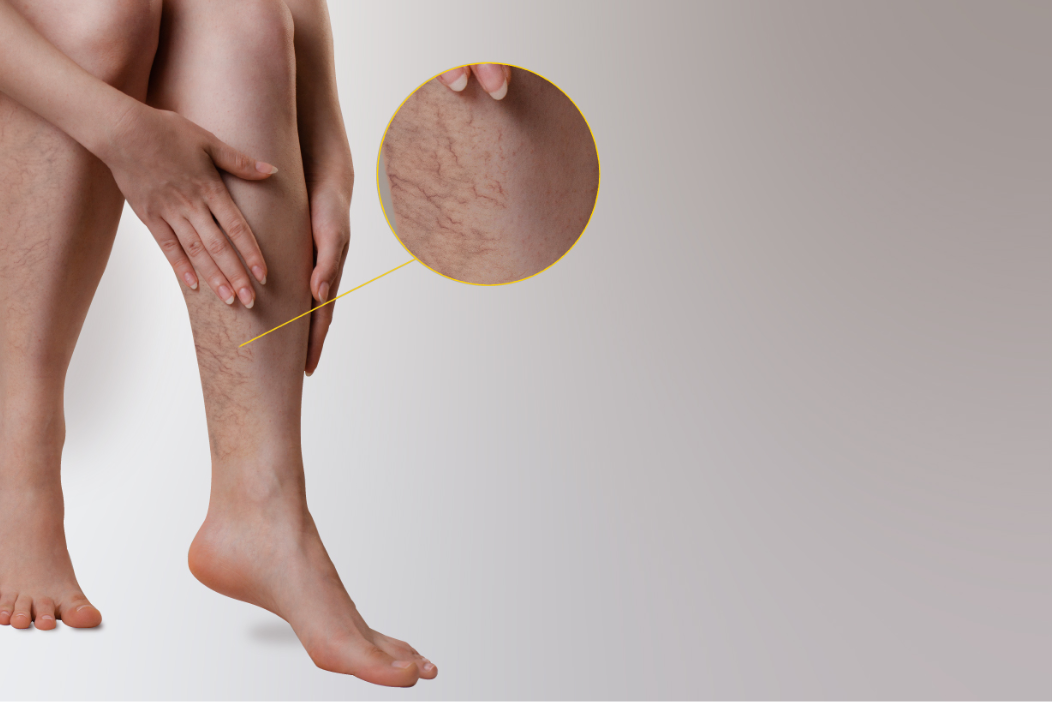Top Long Island Vein Doctors
What Type of Doctor Treats Varicose Veins? And Other Vein-Related FAQs
What type of doctor treats varicose veins?
The type of doctor responsible for the diagnosis and treatment of varicose veins is called a phlebologist, also known as a vein doctor or vascular specialist. Phlebology is the branch of medicine that deals with vascular health and conditions, such as spider veins, varicose veins, and chronic venous insufficiency. They should ideally have specialized training in vascular imaging and the latest minimally invasive spider vein and varicose vein treatments.
Phlebologists can come from numerous fields of medicine, such as anesthesiology, cardiology, and dermatology if they’ve got the necessary training. However, the barrier for entry into phlebology is pretty low, and numerous inexperienced doctors only provide superficial or cosmetic treatments for spider veins and varicose veins. That’s why you must examine the vein doctor’s credentials to ensure they specialize in vein treatments.
The vein doctors at our vein treatment centers in Long Island are individually selected from the country’s leading residency programs and fellowships. Our vein doctors stay abreast of the latest developments in vein care and undergo regular training in the latest treatment modalities. Furthermore, they diagnose and treat the root cause of varicose veins to ensure long-term results.
Do dermatologists treat varicose veins?
Dermatologists can treat varicose veins, but they’re not the right professionals to contact. Dermatology is the branch of medicine that deals with skin-related problems, so dermatologists often focus on providing cosmetic relief from varicose veins. However, varicose veins aren’t skin-deep — they’re caused by a dangerous vascular condition known as chronic venous insufficiency, so you need a doctor who will diagnose and treat the root cause, not just the cosmetic symptoms.
What does a dermatologist do for varicose veins?
Dermatologists generally treat varicose veins using laser therapy or sclerotherapy. Laser therapy is a non-invasive technique wherein specialized light energy is channeled into the varicose veins to shrink their walls, making them fade away from the skin’s surface. Sclerotherapy involves injecting a sclerosant medicine into the superficial varicose veins to seal their walls, turning them into hardened tissues eventually absorbed by the body.
Neither laser therapy nor sclerotherapy addresses the root cause of varicose veins. They might remove the visible spider veins and varicose veins, but they don’t remove the diseased saphenous vein responsible for your vein problems. As such, blood will continue accumulating in the leg veins, eventually leading to new varicose veins and spider veins. That’s why you must consult board-certified vascular surgeons who diagnose and treat the root cause.

We know health insurance is confusing so we will help you check if you’re covered:
FREE Coverage Checker:
How can I get rid of varicose veins without surgery?
Board-certified vascular surgeons and vein specialists provide a wide range of minimally invasive treatments for varicose veins and spider veins. You don’t need surgery for varicose veins, and in fact, you should avoid vein doctors who suggest surgical procedures for varicose veins. In the past, varicose veins could only be treated with surgical procedures, such as vein ligation, vein stripping, and venous bypass surgery.
But that’s not the case anymore. Thanks to advancements in medical science and technology, varicose veins can be treated with minimally invasive procedures, such as radiofrequency ablation, endovenous laser ablation, and venaseal. These procedures are safe, effective, and performed as in-office treatments that conclude within an hour with no downtime. Furthermore, minimally invasive varicose vein treatments have a nearly perfect success rate!

Visit Our Long Island Vein Treatment Center
What happens if varicose veins are left untreated?
If varicose veins are left untreated, the underlying venous insufficiency will continue progressing further, increasing the risk of advanced complications. The continued accumulation of blood in leg veins will weaken their vein walls, increasing the risk of a varicose vein rupture and profuse bleeding, for which you have to be taken to the emergency room.
Besides burst varicose veins, you may also experience the following complications:
- Skin discoloration because of the lack of blood circulation in leg veins
- Leg swelling because of fluid accumulation in the legs
- Rust-colored and leathery patches on the skin because of the breakdown of blood cells
- Leg ulcers, i.e., non-healing wounds, because of insufficient blood circulation
- Blood clots in the leg veins (deep vein thrombosis) can lead to a pulmonary embolism
Is massage good for varicose veins?
Yes, massaging your legs can alleviate the worst symptoms of varicose veins and vein disease, such as leg heaviness and restless leg syndrome. That’s because a massage can push the accumulated blood towards the heart, thus alleviating the pressure from your legs. However, the relief is temporary, and you still need minimally invasive varicose vein treatments for lasting relief.
Can a varicose vein pop?
Yes, a varicose vein can pop or rupture. As blood continues accumulating in the leg veins, your varicose veins continue dilating, thereby weakening the vein walls. The continued expansion of varicose veins can eventually lead to a rupture and profuse bleeding, for which you have to be hospitalized. As such, you must seek varicose vein treatments as soon as possible.
Are you awake during varicose vein surgery?
You should avoid vein doctors and vein clinics that recommend varicose vein surgeries, such as vein ligation, vein stripping, and venous bypass surgery. Vascular surgeries are performed in hospitals and involve considerable downtime — they also have a higher risk of complications.
You should only opt for minimally invasive varicose vein treatments, such as radiofrequency ablation and endovenous laser ablation. These are in-office and outpatient procedures performed under local anesthesia and sedation — you’ll be awake, but you won’t feel any pain or discomfort.
Long Island
Vein Specialists
Meet your Long Island NY Vein Doctor
With Harvard Trained Medical Directors, our vein clinic Long Island sources only the top spider and varicose vein experts in the country.


Change your life
Join thousands of happy patients just like you
Vein treatments are often covered by major medical insurances, including Medicare. How do you know if your insurance will cover your vein treatment?
Contact us
CALL US
Speak with one of our team members to ask any questions you may have, verify your insurance and book an appointment at your earliest convenience. (631) 629-1118
BOOK APPOINTMENT
You can give us a call at (631) 629-1118 or fill out one of our forms here to request a call back; one of our team members will call you and help you verify your insurance coverage before booking your appointment.
Get directions
Visit us at our Long Island Vein Treatment Center located at 481 West Montauk Highway.